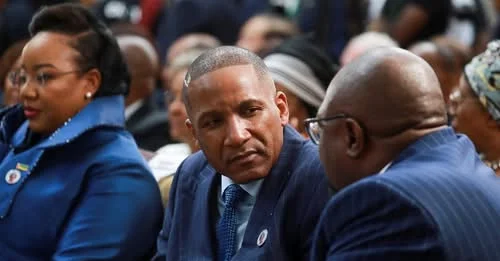The Botswana President Duma Boko has declared a public health emergency following severe shortages of essential medicines and medical supplies that have disrupted healthcare services nationwide.
Surgeries Suspended as Shortages Worsen
On August 4, the Ministry of Health suspended all non-urgent surgeries. The shortages affect drugs used to treat hypertension, diabetes, cancer, asthma, and eye conditions, as well as sexual and reproductive health supplies.
Government Allocates Emergency Funding
In a televised address on Monday, August 25, 2025, President Boko admitted that the country’s medical supply chain had “failed.” He announced 250 million pula (£13.8m) in emergency funding for medicines, with the military overseeing distribution.
Boko accused the Central Medical Stores (CMS) of inflating drug prices. While CMS quoted 705 million pula for a year’s supply, a new emergency taskforce secured a quote of less than 80 million pula.
“The current prices often are inflated five to ten times. Under the current economic conditions, this scenario is not sustainable,” Boko said.
Procurement Failures and Corruption Allegations
Experts say the CMS has long struggled with inefficiency, corruption, and unfulfilled reforms. University of Botswana lecturer Thabo Lucas Seleke noted that annual auditor general reports consistently flagged missing contracts, incomplete procurement records, and delivery delays.
Diamond Market Downturn Deepens Crisis
The health emergency comes as Botswana faces a three-year diamond market downturn, which has severely hit the economy. According to the IMF, diamonds accounted for:
- 25% of GDP
- One-third of government revenue
- 80% of exports
The economy shrank by 3% in 2024, limiting the state’s ability to finance healthcare. Analyst Zoë McCathie of Signal Risk said the prolonged slump left the government unprepared for the fiscal strain.
Mounting Debts and U.S. Aid Cuts
The Ministry of Health also admitted it owes 1 billion pula to private health providers and suppliers.
Botswana has made major progress in fighting HIV/AIDS, earning WHO gold-tier recognition in 2024 for eliminating mother-to-child HIV transmission.
However, U.S. aid cuts in January further strained the system. Previously, the PEPFAR program contributed $55 million annually, alongside $12 million from the Global Fund. Some funding has since been restored, but gaps remain.
Outlook: Urgent Reforms Needed
The crisis underscores Botswana’s urgent need for procurement reform, economic diversification, and sustainable healthcare financing. Without these changes, experts warn, the country risks losing its hard-won public health achievements.
Israel Plans Full Occupation of Gaza City Despite Ceasefire Talks























